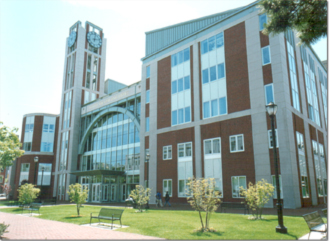Lately my study group asked me about my life in law school so far. This is what I said:
So far here are my impressions of my classes:
Real Estate Transactions: This is my favorite class by far. I’m such a nerd about it that I do extra reading, and I’m not generally bored or distracted when working on it. The class is basically a “how to be a good real estate lawyer” and I’ve already learned a lot. The professor is an attorney by day, and a professor by evening. She really knows her stuff. I feel like even though there are 30 people in the class I am getting one on one help.
Evidence: My professor is like Woody Allen, so that is funny. I actually enjoy the reading for this class, but I’m not as vigilant as I should be about actually going to class prepared. The professor prefers volunteers, so there is less incentive. The subject matter is easy to visualize, and so I find learning it comes quickly. The book we use is by Sklansky and it has a lot of problems in it. I don’t like the problems as much, because sometimes I don’t know the answer and I have to hope we get it in class.
Constitutional Law: If Professor Kleven taught this class I’d be happy. It seems to be more about philosophy than law. I find the class relatively easy but boring. It’s really fun to talk about, but I find myself not overly interested. Most likely because we are not talking about issues that I’m personally interested. I’m all for talking about that stuff when it comes to gay rights, and so I just have to tell myself that I need to learn this stuff to be able to do what I want.
Wills, Trusts, and Estates: I hated this first week of this class. I don’t do numbers, and I don’t know anything about finance. So when he was talking about Tax Shelter blah blah I was completely confused. We have now moved on to more interesting things like “who is considered an heir” and I like that. The professor is from Tennessee and so he LOVES me since I went to Rhodes. We also bond over real estate title law issues. It’s my least favorite class, but I still enjoy it. However, doing the reading is mind numbing. OH! and get this. So…he finally read his reviews from last semester. Apparently some students were upset he did not “cold call” students to brief. They said they wanted to speak in class, but were to shy. So they wished he would call on them. My first thought was “If you want to talk, do so. Judges aren’t going to ask you if you have an objection to something!” anyway…the professor has decided to comply with the demands of last semester
and cold call on us. However, he said we are free to pass if we want. He won’t make anyone talk.
School life:The transfer students are definitely bonding. We are all about getting to know one another. There is a pub people go to after Con. law and I went last night. It was fun. The students here really like to have fun. The 1L students all seem….happy. It’s kind of creepy. I think by this time I was going kind of nuts, trying to do all the reading. It was also about this time that I said “Screw Crim Law” and never opened that book outside of class.
I won’t say I miss my car. I do not. However, I do marvel at the fact that I can walk around and carry 50+ pounds of books all over New Jersey. It makes me feel good that I’ve not been using the state of the art gym at Rutgers as my running shoes are on a truck being delivered with the rest of the furniture this week. Speaking of the gym…all the boys at my school must live there. The eye candy is insane.

